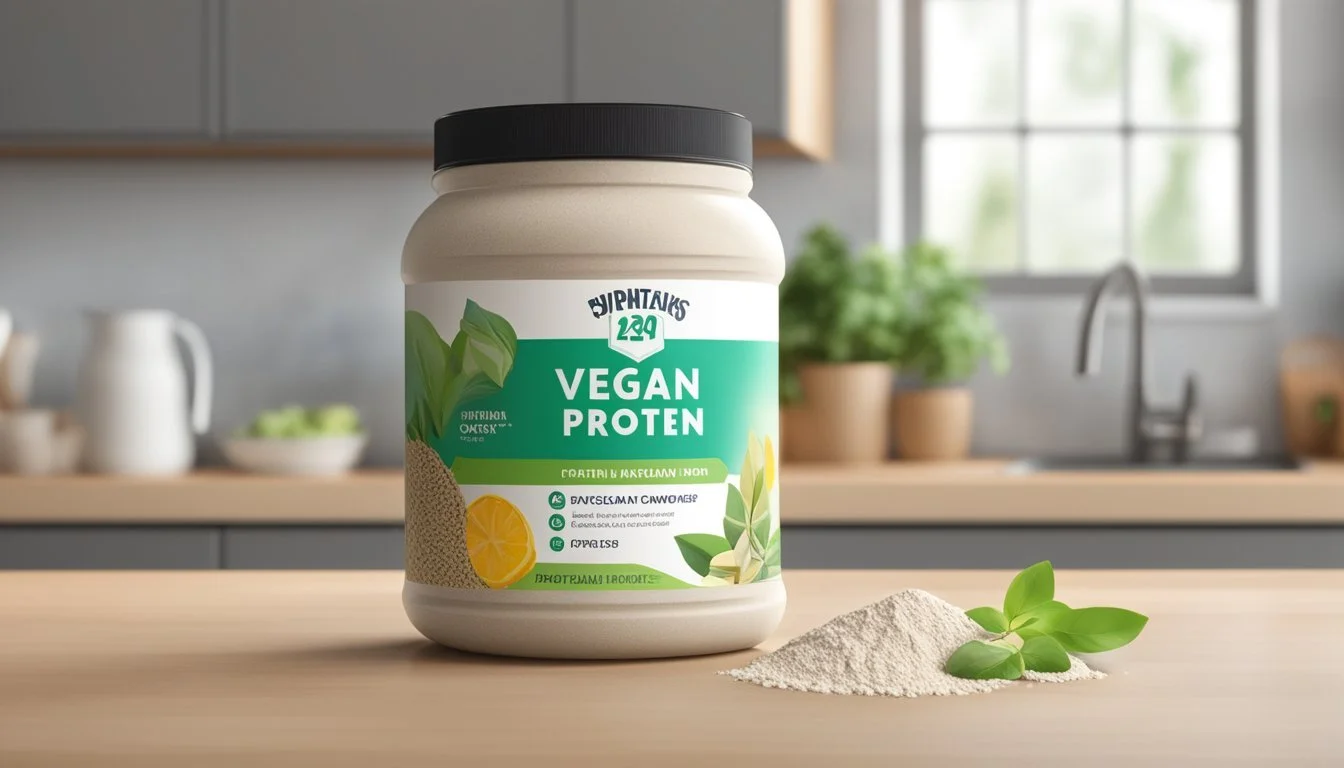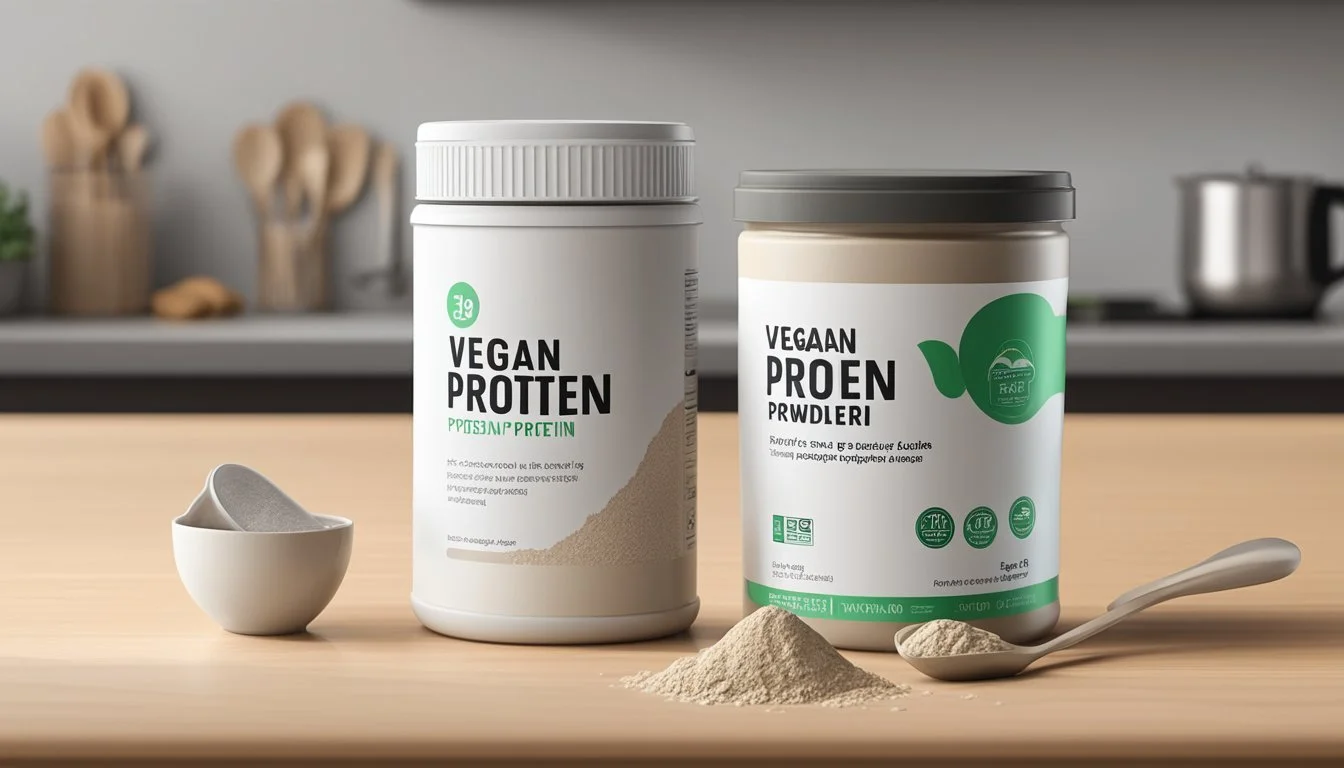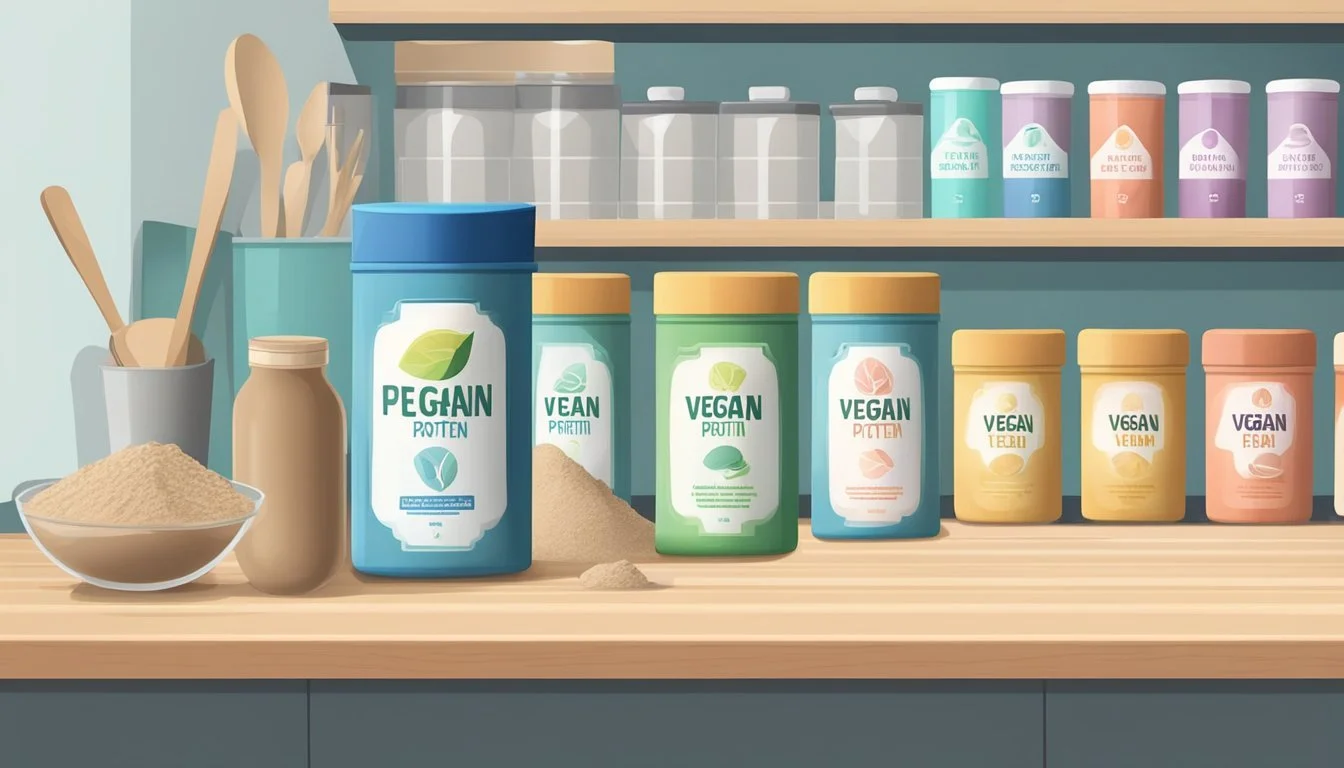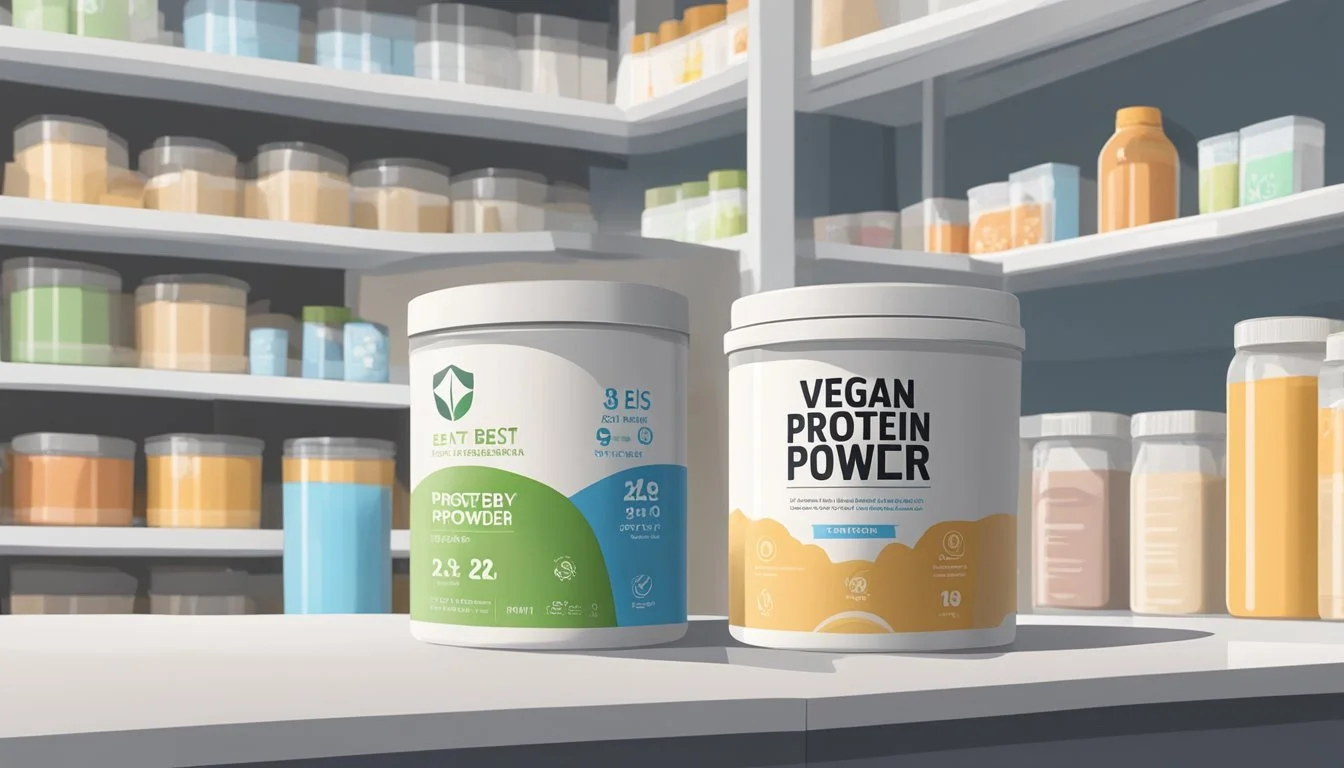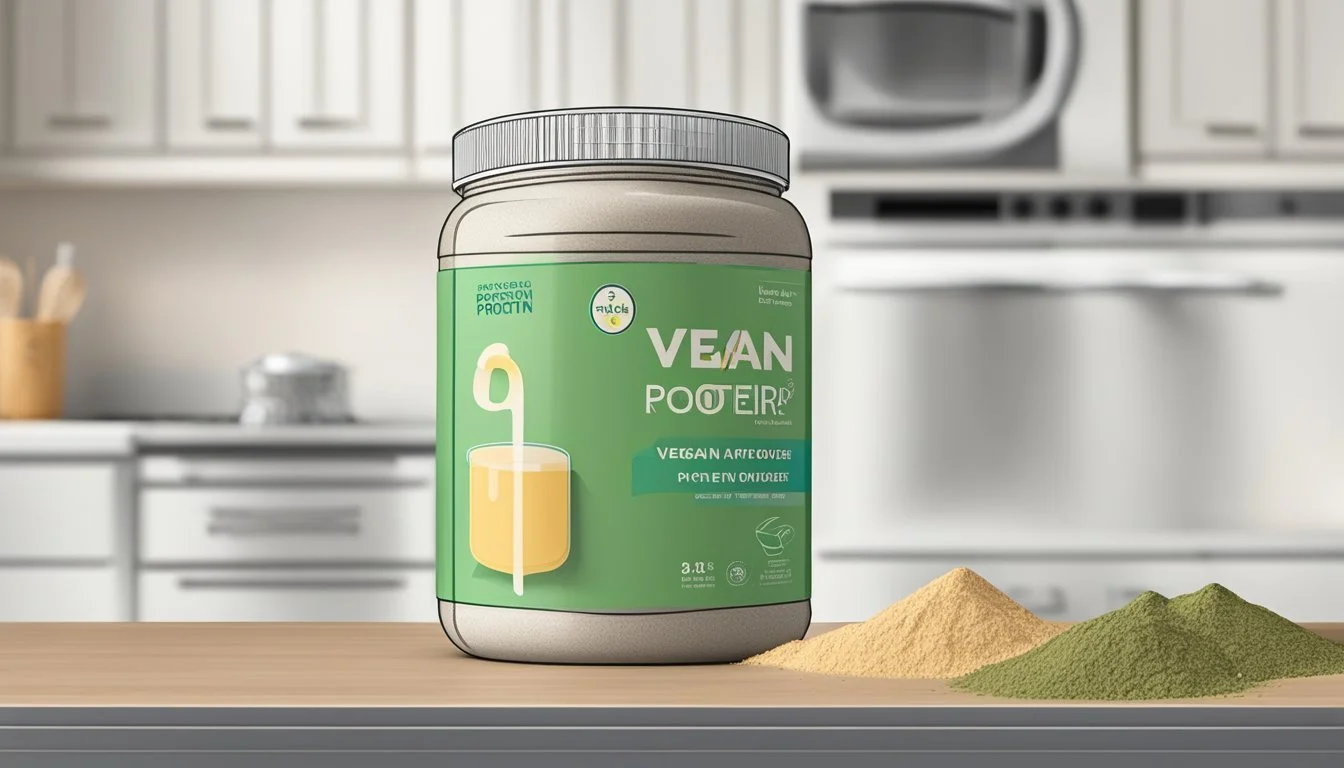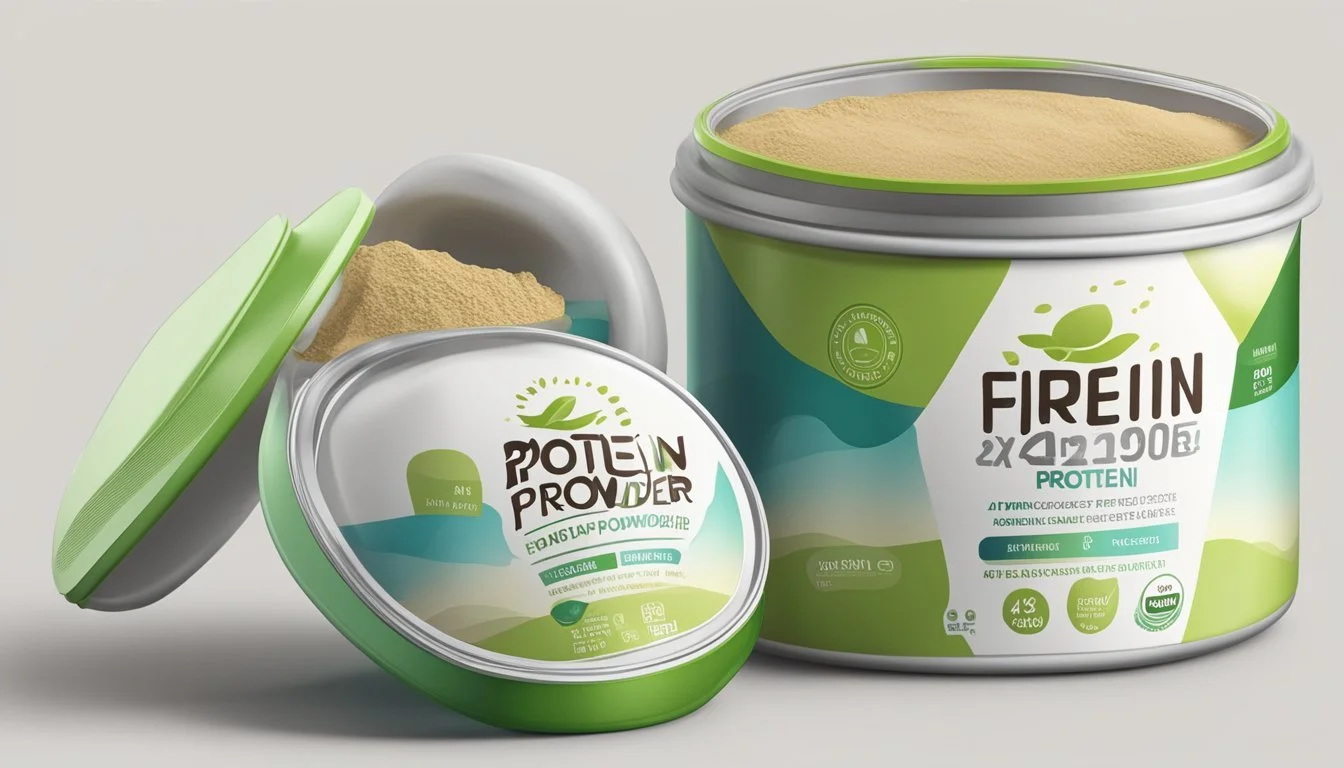Does Vegan Protein Powder Go Bad?
Shelf Life and Storage Tips
Vegan protein powder, like any food product, is subject to expiration. Yes, vegan protein powder can go bad. Key factors such as storage conditions and exposure to heat, moisture, and air significantly impact its shelf life. Properly stored in cool, dry places, these powders often remain safe for consumption for up to 24 months.
Over time, the quality of vegan protein powder can deteriorate. The breakdown of amino acids and the growth of microorganisms like mold are potential risks. While ingesting expired protein powder may not always cause immediate harm, it can lead to reduced nutritional benefits and unpleasant gastrointestinal symptoms, such as bloating or an upset stomach.
Consumers should pay attention to the expiration dates set by manufacturers. These dates provide a guideline, but careful storage can extend the usability of the product. For optimal safety and nutrition, it's best to use protein powder well within its recommended time frame.
Understanding Protein Powders
Protein powders are dietary supplements that provide a high concentration of protein in a powdered form.
They are popular among athletes, fitness enthusiasts, and those looking to supplement their diet with additional protein. There are several types of protein powders, each with distinct sources and benefits.
Whey Protein is one of the most well-known and widely used protein powders. It is derived from dairy and is known for its quick absorption and complete amino acid profile.
Casein Protein is another dairy-based protein. Unlike whey, it is absorbed slowly, making it ideal for sustained protein release, such as during sleep.
Plant-Based Protein Powders encompass a variety of sources, including:
Pea Protein: Made from yellow split peas, it is high in branched-chain amino acids (BCAAs) and is easily digestible.
Soy Protein: Derived from soybeans, it contains all essential amino acids and is a common alternative to dairy proteins.
Rice Protein: Made from brown rice, it provides a hypoallergenic option suitable for those with dietary restrictions.
Hemp Protein: Sourced from hemp seeds, it offers omega-3 and omega-6 fatty acids in addition to protein.
Protein powders are often used in shakes, smoothies, or added to recipes to enhance protein intake.
When selecting a protein powder, it is essential to consider dietary preferences, allergies, and nutritional goals.
Careful storage and adherence to expiration dates are crucial for maintaining the quality and safety of these supplements.
Factors Affecting Vegan Protein Powder Stability
The stability of vegan protein powder is influenced by various factors, including storage conditions, expiration dates, and physical signs of spoilage. Understanding these elements helps ensure the product remains safe and effective for consumption.
Impact of Storage Conditions
Storage plays a critical role in maintaining the stability of vegan protein powder. Exposure to factors like air, light, and moisture can significantly affect the product.
Air Exposure: When the container is not sealed properly, moisture can seep in, causing the powder to clump. Always use airtight containers.
Temperature and Humidity: High temperatures and humidity levels can accelerate spoilage. Store the powder in a cool, dry place like a pantry to extend its shelf life.
Light Exposure: Direct sunlight may degrade the protein quality. Keep the product in a dark, enclosed space.
Expiration and Shelf Life
Each vegan protein powder comes with an expiration or best-by date. Understanding these dates helps in knowing how long the product remains safe and effective.
Expiration Date: This is the final date by which the product should be consumed. Consuming beyond this may pose health risks.
Shelf Life: Generally ranges from 1 to 2 years if stored properly. Certain types of protein, like hemp or soy, may have varying shelf lives.
Best-By Date: Indicates optimal quality. Following this date, the powder may lose its effectiveness but isn’t necessarily unsafe.
Physical Signs of Spoilage
Knowing the physical signs of spoilage is essential to determine if vegan protein powder has gone bad. Common indicators include changes in smell, flavor, and texture.
Clumping: If the powder has clumped together, it may indicate moisture exposure and spoilage.
Discoloration: Any unusual change in color can be a sign of spoilage. Always check for uniform color.
Off Smell: A sour or rancid smell often indicates that the product is no longer safe to consume.
Altered Flavor and Texture: If the taste or texture seems off, it's a sign that the protein powder might be spoiled. Always trust your senses to gauge freshness.
By paying attention to these key factors, users can ensure that their vegan protein powder remains in optimal condition for consumption.
Nutritional and Quality Considerations
Understanding the nutritional and quality aspects of vegan protein powder is crucial for ensuring it meets dietary needs and retains its effectiveness over time. This includes examining its protein content, amino acid profile, and the preservation of its nutritional integrity.
Protein Quality and Nutrition
The quality of vegan protein powder depends significantly on its amino acid profile. It should ideally contain all nine essential amino acids, making it a complete protein source. Common sources include pea protein, hemp protein, and soy protein, each offering varied levels of essential amino acids.
Nutritional value can vary based on the protein source. For instance, soy protein is rich in BCAAs (branched-chain amino acids), important for muscle repair. Other nutrients like minerals and fiber often accompany vegan protein powders, enhancing their nutritional profile. He ensures to check labels for protein content and additional nutrients to match their dietary requirements.
Preservation of Nutritional Integrity
The freshness of vegan protein powder significantly impacts its potency. Proper storage conditions, such as keeping the powder in a cool, dry place, preserve its nutritional integrity. Exposure to moisture and heat can degrade essential amino acids, reducing its effectiveness.
Packaging also plays a crucial role. Resealable bags and airtight containers are ideal to maintain quality. Checking the expiration date is essential; consuming past this date can lead to diminished nutritional value and taste. To ensure consistent nutrition and quality, users should always adhere to recommended storage practices and consumption guidelines.
Health Implications of Expired Protein Powder
Consuming expired protein powder can pose several risks, particularly related to safety and digestive health. Key concerns include the possibility of harmful bacteria and mold growth, as well as potential digestive and metabolic issues.
Safety and Health Risks
Vegan protein powders, like their non-vegan counterparts, can become a breeding ground for harmful bacteria and mold if stored improperly or consumed well after their expiration date. Although vegan powders aren't as prone to bacterial contamination as animal-based products, they are not immune.
Mold growth is another concern and can occur in protein powders that have absorbed moisture or been contaminated during storage. Ingesting expired or contaminated protein powder can lead to symptoms such as bloating, nausea, and even food poisoning. Both bacterial and mold contamination can negate the health benefits of the protein powder, turning a beneficial supplement into a potential health hazard.
Digestive and Metabolic Concerns
Expired protein powders may lose their nutritional value over time, reducing their effectiveness. Reduced protein quality can interfere with metabolic processes that rely on adequate protein intake, affecting muscle repair and growth.
Digestive discomfort is another issue, with expired powders potentially causing bloating, gas, and upset stomachs. An upset digestive system can lead to malabsorption of nutrients, impacting metabolism and overall health. It's important to consider these factors when deciding whether or not to consume protein powder past its expiration date. Proper storage and mindful consumption can help mitigate these risks, ensuring that the protein powder continues to be a valuable part of one's nutrition regimen.
Proper Storage and Handling of Vegan Protein Powder
To ensure vegan protein powder remains fresh and nutritious, it is essential to store it properly and handle it with care. This will maximize its shelf life and prevent contamination and quality loss.
Maximizing Shelf Life Through Optimal Storage
Storing vegan protein powder in a cool, dry place is crucial. A pantry or a kitchen cabinet away from heat sources works well. Temperature plays a significant role, and maintaining it around room temperature, typically 70°F (21°C), can help extend the powder’s usability.
Avoid placing containers in areas with excessive humidity. High humidity can cause the powder to clump and degrade faster. Air-tight packaging is equally important. The original container is usually suitable, provided it is sealed tight after each use. For extra protection, consider using an additional moisture-proof bag or container.
Light exposure can also diminish the quality of vegan protein powder. Keeping it in a dark place or an opaque container can minimize this risk.
Preventing Contamination and Quality Loss
Ensuring that no contaminants get into the container is a key aspect of maintaining the quality of vegan protein powder. Use a clean, dry spoon specifically for scooping the powder, and avoid touching the powder directly with your hands.
Moisture is one of the biggest culprits in degrading the powder. Always ensure that the spoon and hands are completely dry before handling the powder. Bacteria and mold can thrive in moist environments, which can spoil the powder.
Regularly check the sell-by date or expiration date to monitor freshness. Consuming the powder within the recommended timeframe is advisable, even though it might still be usable for a short period beyond this date.
Indicators of Efficacy in Protein Supplements
When evaluating the efficacy of protein supplements, several key indicators should be considered.
First, the protein content per serving is crucial. A high-quality supplement should provide a substantial amount of protein, aiding in muscle gain and muscle recovery.
Amino acid profile is another vital factor. Effective protein supplements should contain all essential amino acids, which are necessary for optimal muscle restoration and overall health benefits.
Absorption rates also play a significant role. Faster-absorbing proteins like whey are often preferred during post-exercise periods, as they help kickstart the muscle recovery process more quickly.
Digestibility is important as well. Vegan protein powders, for instance, are known for their easier digestion, minimizing issues such as bloating and discomfort.
Look for additives and fillers. Supplements with minimal added sugars and artificial ingredients are generally more beneficial, aligning with resistance exercise goals and overall health benefits.
Moreover, examining user reviews and independent lab tests can provide insights into a product's efficacy, particularly in terms of real-world protein intake and muscle gain outcomes.
Comparing the bioavailability of different protein sources helps determine how efficiently the body can utilize the protein. For example, the high bioavailability of whey versus various plant-based proteins.
Key Considerations
Protein Content Per Serving
Essential Amino Acid Profile
Absorption Rates
Digestibility
Additives and Fillers
User Reviews and Lab Tests
Bioavailability
These factors collectively ensure that a protein supplement meets the necessary criteria for supporting exercise and health benefits effectively.
Chemical and Physical Change Indicators
Indicators of spoilage in vegan protein powder include changes in color, smell, and taste, which are often due to chemical reactions such as Maillard browning and rancidity, as well as physical signs like mold and oxidation.
Understanding Maillard Browning and Rancidity
Maillard browning occurs when amino acids and sugars in the protein powder react, leading to discoloration and changes in flavor. The powder may turn a darker color and develop a slightly burnt or caramel-like taste. This is a sign that the shelf life is compromised, impacting the quality and nutritional value.
Rancidity is the result of fat oxidation. Vegan protein powders containing plant oils (e.g., hemp, soy) can develop rancid flavors if stored improperly. A strong, unpleasant smell indicates that the fats have oxidized, potentially making the powder harmful to consume.
Key points:
Discoloration: Darkening of the powder.
Smell: Burnt or rancid odor.
Flavor: Unsavory, altered taste.
Identifying Mold and Oxidation Effects
Mold growth is a significant sign of spoilage, especially in protein powders exposed to moisture. Mold can appear as greenish or whitish spots, often accompanied by a musty smell. Consuming moldy protein powder is dangerous and can lead to serious health issues caused by bacteria and toxins produced by the mold.
Oxidation affects the protein and fat in the powder, resulting in changes in taste and smell. Indicators include a metallic or off taste, as well as changes in color and texture.
Key points:
Mold: Visible spots and musty odor.
Smell: Musty or metallic scent.
Flavor: Metallic or off taste.
Awareness of these chemical and physical change indicators is crucial for ensuring the protein powder remains effective and safe to consume.
Considerations for Vegan Protein Powder Selection
Choosing the right vegan protein powder involves evaluating plant-based protein types and understanding the additives and nutritional enhancements they contain. This ensures you select a product that aligns with your health goals and dietary preferences.
Evaluating Plant-Based Protein Types
Vegan protein powders can be derived from various plant sources, each with its own benefits and limitations. Soy protein is a top choice as it is a complete protein containing all nine essential amino acids. Pea protein is another popular option, especially for those avoiding soy, though it lacks certain amino acids like methionine.
Hemp protein is praised for its digestibility and omega-3 fatty acids, while brown rice protein is hypoallergenic but often needs to be mixed with other sources to provide a complete amino acid profile. Quinoa protein is a standout due to its complete amino acid profile but is often more expensive. Cost, taste, and flavor preferences also play essential roles in deciding between these types, as each has a unique taste and texture.
Additives and Nutritional Enhancements
When selecting a vegan protein powder, be mindful of additives that are commonly included to improve taste and texture. Artificial sweeteners, maltodextrin, and lecithin are frequently used, but some individuals may prefer to avoid these. Added sugars and flavorings can enhance taste but may not align with health goals.
Look for options that are sugar-free or use natural substitutes like stevia. Many powders also include beneficial additions like iron, magnesium, zinc, and other essential minerals, particularly in seed-based proteins like hemp and pumpkin. These additional nutrients can support overall health, making the protein powder not just a supplement but a more comprehensive nutritional aid.
Legal and Regulatory Information
When discussing the expiration of vegan protein powders, legal and regulatory guidelines play a crucial role. In the United States, the FDA oversees dietary supplements, which include protein powders.
Expiration dates or best-by dates are commonly found on these products. These dates help consumers understand the timeframe in which the product maintains optimal quality. It’s important to note that post-expiration, the powder is not necessarily unsafe but may not be as effective.
Labeling requirements are also stringent. The FDA mandates that labels provide accurate information about the product’s ingredients, nutritional information, and shelf life. This ensures consumers are well-informed about what they are purchasing and consuming.
In the European Union, alternative protein products must also adhere to specific regulations. For instance, the names, nutrition claims, and health claims on vegan protein products are regulated to avoid misleading the consumer.
These regulations ensure transparency and safety in the market for vegan protein powders, making it easier for consumers to make informed decisions.


